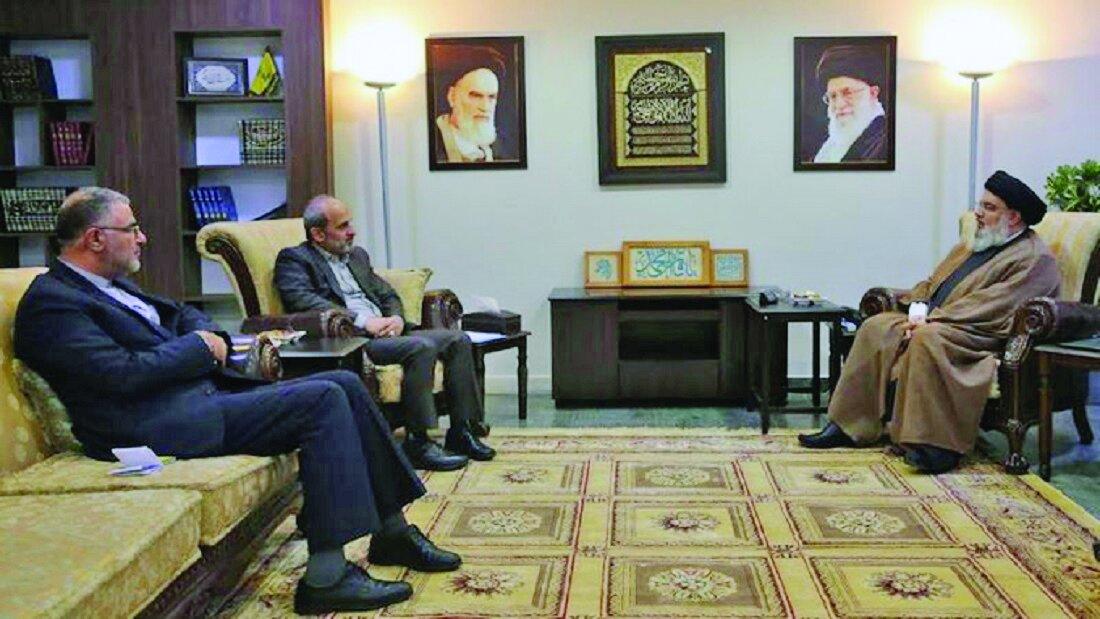
Head of Iranian broadcaster meets Hezbollah chief
In the meeting, they discussed the media challenges facing the Resistance Front. “The responsibilities and tasks of the Axis of Resistance were reviewed at the media level, the media and political challenges it faces, and how to deal with them as part of the comprehensive resistance in the face of occupation and domination,” Hezbollah said in a statement.
Jebelli earlier said that his trip to Lebanon was aimed at strengthening cooperation with the media. “This trip is in the direction of consensus and better interaction with the media and various officials to explain the achievements of the Resistance Axis,” he said upon arriving in Beirut.
Jebelli also pointed to the good, timely and fast coverage of regional events in various national media networks, including overseas networks. “Radio and Television of the Islamic Republic of Iran has a brilliant track record in Axis of Resistance countries. It has been very effective especially in sensitive times such as the liberation of southern Lebanon in 2000 and also in the victory of the 33-day war in Lebanon,” he added.
The IRIB operates many Arabic-language channels. And it has been also sanctioned by the U.S. Earlier this year, Jebelli criticized the sanctions imposed on the broadcaster by the West, asserting that they are a flagrant violation of the right to free expression and a clear example of “media dictatorship.”
He made the statement while commenting on the monopolistic and authoritarian tactics of anti-Iran media as well as the West’s enforcement of stringent sanctions on the IRIB and its affiliates in response to recent foreign-backed riots in Iran.
Speaking to Fars News Agency, Jebelli underlined that “for years, we have witnessed obvious inconsistency between the claims and actions of those who claim to be champions of free speech, democracy and respect for society, one of the examples of which is the U.S. violation of human rights by sanctioning the Islamic Republic of Iran Broadcasting.”
He went on to say, “When Western and international organizations act to boycott the IRIB, they demonstrate how easily restrict free speech, with which they have long blinded the eyes of the whole world, occur.”
Jebelli emphasized that the IRIB is Iran’s national media and that it generates content and offers information in accordance with societal demands and helps the growth of the country.
Source: tehrantimes





